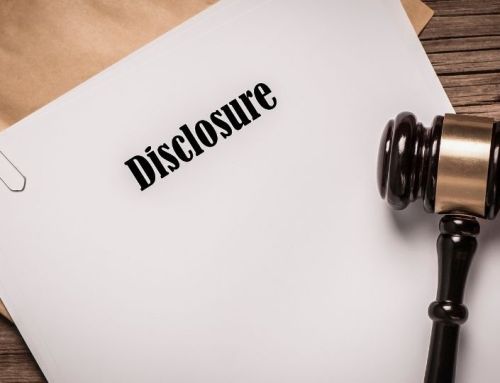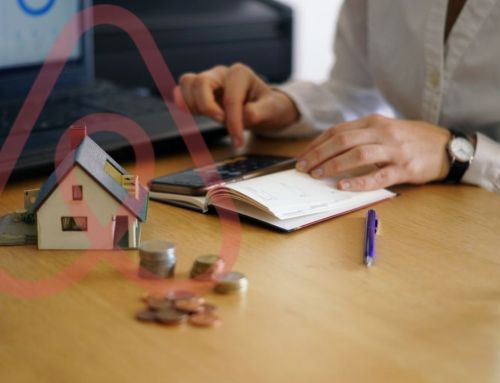Property rental can be a profitable venture, but it comes with tax responsibilities. If you earn money from letting out residential or commercial property, even informally, you’re required by law to declare that income to HMRC. Failing to do so can lead to fines, interest, and legal scrutiny.
Whether you’ve just started letting a spare room, or you’re a new landlord with a buy-to-let mortgage, this guide will walk you through how to declare rental income to HMRC accurately and on time.
Finding it difficult to Start keeping accurate records of your rental income and expenses then Contact Taxcom for handling all your queries..
What is Considered Rental Income in the UK?
Before you can understand how to declare rental income, you need to know what HMRC defines as rental income. In the UK, rental income includes more than just monthly rent payments. It encompasses all payments you receive from tenants related to the occupation of your property.
Income HMRC Considers Taxable:
- Rent Payments:
The primary source of income – this includes regular rent from tenants or lodgers. - Utility Payments and Bills:
If your tenant pays you a flat fee that includes utilities, or reimburses you for bills, that amount counts as income. - Furnishings and Services:
Charges for furniture use, cleaning services, internet, gardening, or maintenance are all taxable. - Non-refundable Deposits:
If you retain part or all of a deposit due to tenant damage or unpaid rent, this must be included in your declared income. - Lease Premiums:
For longer-term leases (over 50 years), part of the lease premium may count as rental income. - Holiday Lets and Airbnb:
Income from short-term lets also qualifies as rental income and must be declared, even if you only rent occasionally.
Understanding what counts helps you avoid underreporting income or over-claiming deductions.
Call to Action: Review all payments from tenants – even incidental ones – and include them in your rental income records.
When and Why You Must Declare Rental Income
Knowing how to declare rental income is only part of the process — timing is just as critical. HMRC requires individuals to report rental income under Self Assessment if their income exceeds certain thresholds or meets specific conditions.
When You Need to Declare Rental Income
You must declare rental income to HMRC if:
- Your total rental income is over £1,000 per tax year
HMRC offers a “property income allowance” of £1,000. If your gross rental income is less than or equal to that amount in a tax year (6 April to 5 April), you don’t need to declare it. If it exceeds £1,000, you must register for Self Assessment and file a tax return. - You rent property through a company or business structure
Even if your share of rental income is under £1,000, if you’re letting through a business or have joint ownership structures (such as partnerships), declaration is still required. - You live abroad but rent out UK property
Non-resident landlords must still declare rental income to HMRC. In many cases, tenants or letting agents must withhold tax at the source unless you register with HMRC’s Non-Resident Landlord Scheme. - You operate furnished holiday lettings (FHLs)
These are treated differently from traditional buy-to-let income and come with separate rules and reliefs — but still require declaration. - You’ve sold or plan to sell the rental property
Capital Gains Tax (CGT) may apply, and previous rental income history may be relevant to your CGT calculation.
HMRC Penalties for Non-Declaration:
- Up to 100% of the unpaid tax in penalties
- Daily interest charges
- Potential criminal proceedings in severe cases
Don’t wait for HMRC to contact you — register for Self Assessment Through The Taxcom as soon as your rental income exceeds the threshold.
How to Declare Rental Income to HMRC
Once you’ve determined that your rental income exceeds the £1,000 threshold and must be reported, you’ll need to go through HMRC’s investigation process. Here’s a step-by-step guide on how to declare rental income to HMRC properly.
Step 1: Register for Self Assessment
If you’re a new landlord, you must first register for Self Assessment by 5 October following the end of the tax year in which you received rental income.
- Where: GOV.UK – Register for Self Assessment
- When: For example, if you earned rental income in the 2024/25 tax year (ending 5 April 2025), you must register by 5 October 2025.
- What you’ll get: A Unique Taxpayer Reference (UTR) and activation code for your Government Gateway account.
Step 2: Keep Detailed Records
You must maintain accurate, dated records for all rental income and allowable expenses. These should include:
- Rental agreements
- Rent payment receipts
- Bank statements
- Invoices for repairs, insurance, or services
- Mortgage interest statements
- Utility bills (if paid by you and included in rent)
HMRC can request records going back 6 years, so store them securely.
Step 3: File Your Self Assessment Tax Return
Each year, you must file your return by the deadline:
- Paper returns: 31 October
- Online returns: 31 January
The tax return form is SA100, and rental income is entered under SA105 (UK Property).
You’ll need to:
- Enter total rental income
- Subtract allowable expenses (we’ll cover these next)
- Declare profit or loss
- Submit online or via an accountant
Step 4: Pay Any Tax Due
The deadline to pay is 31 January following the tax year end. You may also have to make payments on account for the next tax year if your tax bill exceeds £1,000.
- Methods of payment: Bank transfer, Direct Debit, debit/credit card, or through your online personal tax account.
Step 5: Declare Future Income Annually
You must continue declaring rental income every year until you:
- Stop letting the property
- Your income drops below the threshold
- You inform HMRC and deregister from Self Assessment
Registering early and filing your Self Assessment on time to avoid fines and ensure accurate reporting of your rental income is the right thing to do. We at The Taxcom are always here to guide you with our teams of experts.
What Rental Expenses Can You Deduct?
Knowing how to declare rental income isn’t just about reporting what you earn — it’s also about understanding what you can legitimately deduct to reduce your tax bill. HMRC allows landlords to offset certain “allowable expenses” against their rental income to calculate the net taxable profit.
What Are Allowable Expenses?
Allowable expenses are costs incurred wholly and exclusively for the purpose of renting out the property. You can only claim for the portion of an expense related to the rental activity — personal use must be excluded.
Common Allowable Expenses:
- Letting Agent Fees
- Charges for property management, tenant finding, and rent collection.
- Property Repairs and Maintenance
- Fixing leaks, repainting, replacing broken fittings (not improvements).
- Routine maintenance is claimable, but capital improvements (e.g. extensions) are not.
- Insurance Premiums
- Landlord insurance, buildings and contents cover, and rent guarantee insurance.
- Council Tax, Utilities, and Ground Rent
- If you pay these costs (not the tenant), they’re allowable.
- Services Provided to Tenants
- Cleaning, gardening, security, or concierge services.
- Accountant Fees
- Costs of professional help with your rental accounts or tax return.
- Legal Fees
- Related to renewing leases of less than a year or evicting tenants.
- Mortgage Interest
- You can no longer deduct mortgage interest directly, but you may claim a 20% basic rate tax credit instead.
- Advertising Costs
- Promoting your property online or in print to find tenants.
- Wear and Tear (Furnished Properties)
- You can’t claim a flat-rate anymore, but you can deduct the actual cost of replacing domestic items, like:
- Beds, sofas
- Curtains, carpets
- White goods (e.g. fridge, washing machine)
Partial Expenses
If a cost is shared between personal and rental use (e.g. broadband), only the rental-use portion is deductible. Be prepared to justify this split with records or usage logs if HMRC asks.

Calculating Taxable Rental Profit
To help you fully understand how to declare rental income and reduce your tax liability, let’s walk through a practical example of how to calculate your taxable rental profit. This involves deducting allowable expenses from your gross rental income and applying the correct tax treatment.
Example Scenario
Let’s say:
- You own a single buy-to-let property in Manchester.
- You receive £1,200 per month in rent.
- You pay for a letting agent, insurance, some repairs, and mortgage interest.
- You do not live in the property.
- You’re a basic rate taxpayer (20%).
Income Breakdown
| Description | Amount (£) |
| Annual Rent | £14,400 |
| Letting Agent Fees | -£1,200 |
| Building Insurance | -£300 |
| Repairs & Maintenance | -£500 |
| Council Tax (you paid) | -£1,000 |
| Mortgage Interest | -£4,000 (20% credit applies) |
Step 1: Total Rental Income
£1,200 x 12 = £14,400
Step 2: Deduct Allowable Expenses
Letting agent fees: £1,200
Insurance: £300
Repairs: £500
Council Tax: £1,000
Total expenses (excluding mortgage interest): £3,000
Taxable profit before interest credit = £14,400 – £3,000 = £11,400
Step 3: Apply Mortgage Interest Relief (20% Credit)
£4,000 interest x 20% = £800 tax credit
Step 4: Calculate Tax Due
You pay 20% income tax on £11,400 = £2,280
Then deduct £800 (mortgage interest credit)
Final tax bill = £2,280 – £800 = £1,480
What If You Made a Loss?
If allowable expenses exceed rental income, you can report a rental loss. This loss:
- Can’t be offset against your other income (e.g. salary)
- Is carried forward and used to offset rental profits in future years
Joint Ownership and Split Income Rules
When more than one person owns a rental property, income tax responsibilities change. HMRC requires that income from jointly owned properties be divided according to specific rules — and how you split income affects how you declare rental income and how much tax each owner pays.
Joint Ownership Between Spouses or Civil Partners
If you and your spouse or civil partner jointly own a rental property, HMRC automatically assumes income is split 50/50 — regardless of how much each person actually contributed to the purchase.
Can You Change the Split?
Yes, but only if:
- You own the property in unequal shares, and
- You submit Form 17 to HMRC, along with supporting evidence (e.g. a deed of trust)
This is commonly done for tax planning, for example, to allocate more income to a lower-earning spouse and reduce overall tax liability.
Joint Ownership with Non-Spouses
If you co-own a property with someone who is not your spouse or civil partner (e.g. a sibling or business partner), income is normally divided based on the legal ownership proportions unless there is a different written agreement.
Declaring Joint Income on Your Tax Return
Each co-owner must declare their own share of the income and expenses on their Self Assessment return. So if you own 50% and the total rent is £10,000, you report £5,000 income — and your share of any expenses.
Common Errors to Avoid:
- Splitting income arbitrarily without legal backing
- Not submitting Form 17 when required
- One person declaring all income in a joint ownership situation
- Claiming 100% of expenses against part of the income
Furnished Holiday Lettings (FHL) vs Regular Rentals
If you let property on a short-term basis — such as a holiday home, Airbnb, or serviced accommodation — and it meets certain conditions, HMRC may treat it as a Furnished Holiday Letting (FHL) instead of a standard rental. The tax treatment is different and can offer some unique advantages, but you still need to understand how to declare rental income from FHLs properly.
What Qualifies as a Furnished Holiday Letting?
To be treated as an FHL, the property must meet all of the following conditions:
- Be in the UK or European Economic Area (EEA)
Properties outside the UK and EEA don’t qualify for FHL treatment. - Be Furnished
There must be sufficient furniture provided for normal holiday use. - Availability Test
The property must be available to let as a holiday home for at least 210 days per year. - Letting Test
The property must be actually let to the public for at least 105 days per year (excluding long-term lets over 31 days to the same tenant). - Pattern of Occupation Test
It must not be let for periods of longer-term occupation for more than 155 days per year.
Tax Benefits of Furnished Holiday Lettings
If your property qualifies as an FHL, you can claim additional tax reliefs that standard landlords cannot:
- Capital Allowances
You can deduct the cost of furniture, equipment, and fixtures. - Business Asset Disposal Relief (formerly Entrepreneurs’ Relief)
May apply when you sell the property, potentially reducing Capital Gains Tax to 10%. - Pension Contributions
Income from FHLs may count as relevant earnings, allowing you to make higher pension contributions. - Interest Deductions
Unlike standard buy-to-let landlords, you can still fully deduct mortgage interest from your rental income.
How to Declare FHL Income
- Declare FHL income separately on your Self Assessment tax return using the SA105 form.
- Tick the box indicating the property is an FHL.
- Record all income and allowable expenses just as you would with other rental properties.
- Ensure your records clearly show you met the qualifying conditions.
Deadlines and Penalties for Late Declaration
Knowing how to declare rental income is essential — but even more important is doing it on time. HMRC enforces strict deadlines for registration, filing, and payment. Missing these can lead to automatic penalties, interest charges, and potentially more serious consequences.
Key HMRC Deadlines for Rental Income
| Action | Deadline |
| Register for Self Assessment | 5 October after the end of the tax year |
| Submit paper tax return (SA100) | 31 October |
| Submit online tax return | 31 January |
| Pay any tax due | 31 January |
| Payments on account (if due) | 31 January & 31 July |
HMRC Penalties for Late Filing
- Missed Tax Return Deadline (Online or Paper)
- £100 fixed penalty (even if no tax is due)
- After 3 months: £10 per day for up to 90 days (£900 max)
- After 6 months: Further £300 or 5% of tax due
- After 12 months: Additional £300 or 5%, sometimes more
- Missed Payment Deadline
- 30 days late: 5% of unpaid tax
- 6 months late: Further 5%
- 12 months late: Further 5%
- Daily interest also applies
- Failure to Notify HMRC
- If you fail to tell HMRC that you have taxable rental income, penalties range from 30% to 100% of the unpaid tax, depending on the level of concealment.
Reasonable Excuses
HMRC may waive penalties if you have a genuine and documented excuse, such as:
- Serious illness
- Bereavement
- Technical issues with the HMRC system
You must appeal promptly and provide evidence.
Payments on Account
If your tax bill is over £1,000 (excluding PAYE), you may be required to make payments on account towards your next year’s tax. These are advance payments due by:
- 31 January (50%)
- 31 July (50%)
Any balance due is settled the following 31 January.
Call to Action: Add HMRC deadlines to your calendar — and consider setting reminders — to avoid late fees and keep your rental finances under control.
Common Mistakes Landlords Make When Declaring Income
Even experienced landlords can slip up when it comes to how to declare rental income correctly. Whether it’s an oversight, misunderstanding of HMRC rules, or poor record-keeping, these mistakes can lead to higher tax bills, penalties, or audits. Here are the most common pitfalls — and how to avoid them.
1. Failing to Register with HMRC
Many new landlords assume that because rental income is “side income” or under a certain threshold, they don’t need to register. But if your gross rental income exceeds £1,000, you must register for Self Assessment and declare it — even if you make little or no profit.
2. Missing Deadlines
Late filing or payment comes with automatic fines and interest. Even one day late can cost you £100.
3. Declaring Gross Income Instead of Net Profit
Some landlords mistakenly report their total rental income without deducting allowable expenses. This leads to an inflated tax bill.
4. Claiming Disallowed Expenses
Not all costs related to the property are deductible. Capital improvements (like extensions), your own labour, or private-use costs are not claimable.
5. Incorrect Income Splits for Joint Ownership
If you co-own a property with a spouse or partner, declaring the wrong income split can lead to overpaying or underpaying tax — and an HMRC enquiry.
6. Not Reporting Income from Short-Term or Airbnb Lets
Some landlords mistakenly think income from holiday lets or casual Airbnb hosting doesn’t need to be reported.
7. Poor Record-Keeping
Not retaining receipts, invoices, or a proper income log makes it hard to back up claims and deductions.
8. Forgetting About the £1,000 Property Allowance
Some landlords fail to apply the £1,000 property allowance when it could reduce their tax bill — especially those with very small earnings.
Call to Action: Review your past returns and bookkeeping habits — fixing these mistakes early can prevent penalties later.
Frequently Asked Questions
1. How do I know if I need to declare rental income?
You must understand how to declare rental income if your gross rental earnings exceed £1,000 per tax year. Even if you’re letting a room, running an Airbnb, or renting occasionally, you must register with HMRC and file a Self Assessment tax return if your income goes over that limit.
2. Can I claim the £1,000 property allowance and still deduct expenses?
When working out how to declare rental income, you must choose between:
- Claiming the £1,000 tax-free property allowance, or
- Deducting actual allowable expenses
You can’t do both in the same tax year.
3. I rent to family at a discounted rate — do I still declare it?
Yes. HMRC still considers that income taxable. Even if it’s below market value, you need to know how to declare rental income correctly — and you may be restricted from claiming full expenses if it’s not a commercial arrangement.
4. What if I don’t make a profit? Do I still need to declare rental income?
Yes. Even if your rental business operates at a loss, you must learn how to declare rental income to HMRC and report your income and expenses through a Self Assessment return. Losses can usually be carried forward to offset future profits.
5. How to declare rental income if I live abroad?
If you’re a non-UK resident with a UK property, you still need to know how to declare rental income to HMRC. You may be required to register under the Non-Resident Landlord Scheme and either pay tax through Self Assessment or have it deducted at source.
6. Can I deduct my full mortgage payments when declaring rental income?
No. One of the most common mistakes in how to declare rental income is thinking mortgage payments are deductible. Only the mortgage interest qualifies — and that’s now restricted to a 20% tax credit for most landlords.
7. I made an error on last year’s return. Can I fix it?
Yes. If you’re reviewing how to declare rental income correctly and realise there was a mistake in a previous tax return, you can amend it within 12 months of the filing deadline. After that, you’ll need to write to HMRC directly.
8. What happens if I’ve never declared rental income in the past?
If you’ve failed to report past rental earnings, HMRC has a disclosure route known as the Let Property Campaign. It’s designed for landlords to catch up. If you’re learning how to declare rental income for the first time and know you’ve missed previous years, disclosing voluntarily can reduce penalties.
9. Is rental income taxed separately from my job income?
No. If you’re wondering how to declare rental income alongside employment income, you should know that rental profits are added to your total income and taxed at your marginal rate. That means it could push you into a higher tax band.
10. Should I open a separate bank account for rental income?
It’s not mandatory, but it’s best practice. Understanding how to declare rental income involves good record-keeping — and a separate account simplifies tracking income and expenses, which makes your Self Assessment more accurate.
Need Help Declaring Rental Income? Let The Taxcom Handle It for You
Declaring rental income to HMRC doesn’t have to be stressful or risky. Whether you’re a first-time landlord, managing multiple properties, or catching up on undeclared income, The Taxcom can guide you through every step.
Contact The Taxcom today for your initial consultation
Table of Content

Our Content Writing Team boasts a proven track record of crafting engaging and impactful content that drives success and achieves results.









